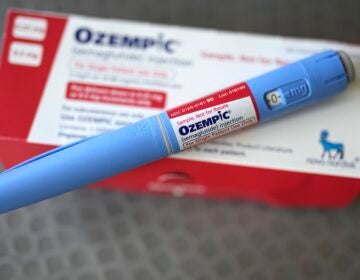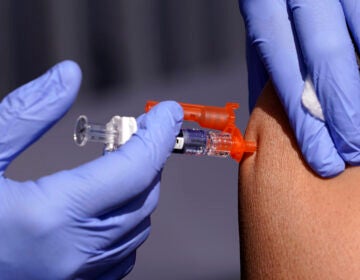First confirmed human rabies death reported in Delaware since 1941
It’s been 77 years since Delaware had a confirmed human death from rabies; the second in the United States this year.

The rabies virus. A Delaware woman died last week from the disease. It was the first human case in the state since a boy died in 1941. (Via shutterstock)
It’s been 77 years since Delaware had a confirmed human death from rabies, but last week a woman who lives in rural Kent County died from the disease.
And Tuesday, state public health officials held a conference call with reporters to warn the public to take extra precautions against infectious disease.
Humans get rabies from the bite or scratch of an infected animal, or if the saliva from such a creature gets into the eyes, nose, mouth or an opening in the person’s skin.
Delaware’s last case before this year was that of a young boy from Newport, who was bitten by a stray dog in 1941.
The new Delaware victim, whose name and age were not released by officials, is the second in the United States this year. The other was in Florida.
Authorities said they do not know how the woman, who lived alone west of Felton, was infected, though she had a cat and feral cats live around her property. She became sick in July and after initial treatment in a Delaware hospital, was sent to a Pennsylvania hospital. But not until earlier this month did she show rabies’ symptoms. By that time she was in condition to communicate how she might have contracted the disease, officials said.
By then it was also too late to get the series of shots that prevents someone who exposed to the virus from getting the disease. Several cases of rabies are found annually in animals such as dogs and raccoons. Nine have been confirmed in 2018 in Delaware. Three were raccoons, three were foxes, and there was one cat, dog and horse. All have died.
The state only announces cases in which it is possible the animal had unknown contacts with humans and there is a risk of exposure to people. Of the nine cases where an animal was positive for rabies, five were in Kent County, three in Sussex and one in New Castle.
To prevent another human case, the state’s public health director, Dr. Karyl Rattay is urging residents across the state to be alert.
“This is a tragic situation and we want to encourage all Delawareans to take preventive measures to avoid exposure to rabies,’’ Rattay said. “It is imperative to report animal bites and scratches immediately to health officials so that preventive treatment can be initiated.”
She also urged Delawareans to “avoid touching unfamiliar animals even if they appear friendly. Be on the lookout for potentially rapid animals such as foxes, cats, dogs, bats, skunks and raccoons.”
Rattay also reminded owners of dogs, cats and ferrets to follow the law and get them vaccinated after they turn 6 months old.
Rattay would not identify the two hospitals where the woman was treated, but said state officials are working with Pennsylvania health officials and the U.S. Centers for Disease Control and Prevention (CDC) on the investigation.
Though Rattay said the disease cannot be transmitted from human to human, she said risk assessments are being conducted with staff members at the hospitals who had direct exposure to infectious materials, as well as anybody who had contact with the woman in the two weeks before she was hospitalized.
For people who are scratched or bitten by an animal, they are urged to contact state officials, and if the animal is found to be infected, to immediately undergo a series of four vaccinations to prevent the disease from developing. If the animal cannot be found to be quarantined or tested, Rattay urged them to receive the vaccinations as a precautionary measure.
The state Rabies Program has two numbers. Call (302) 744-4995 during business hours and (888) 295-5156 outside of business hours. An epidemiologist is available 24/7.
Residents with animals who have been bitten or scratched by another animal, or have come into contact with their saliva or remains in the last two months, should contact the Department of Agriculture at 302-698-4630 or rabies.hotline@state.de.us.
WHYY is your source for fact-based, in-depth journalism and information. As a nonprofit organization, we rely on financial support from readers like you. Please give today.





